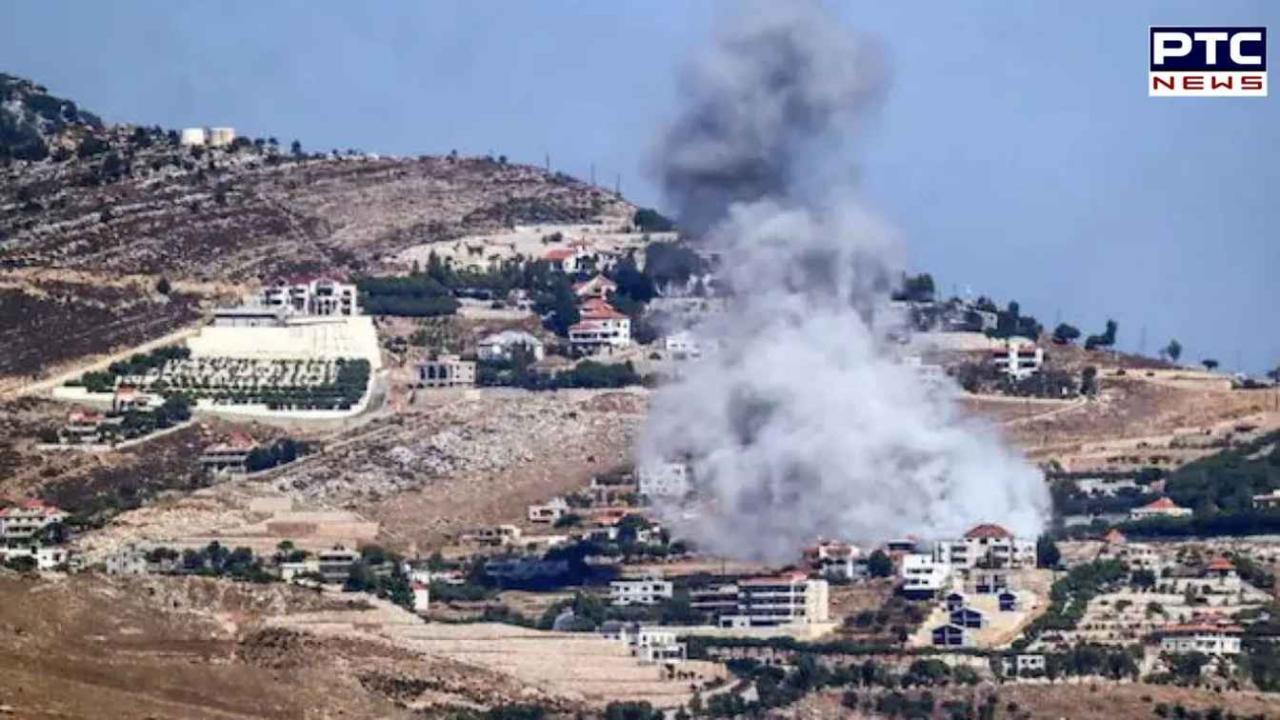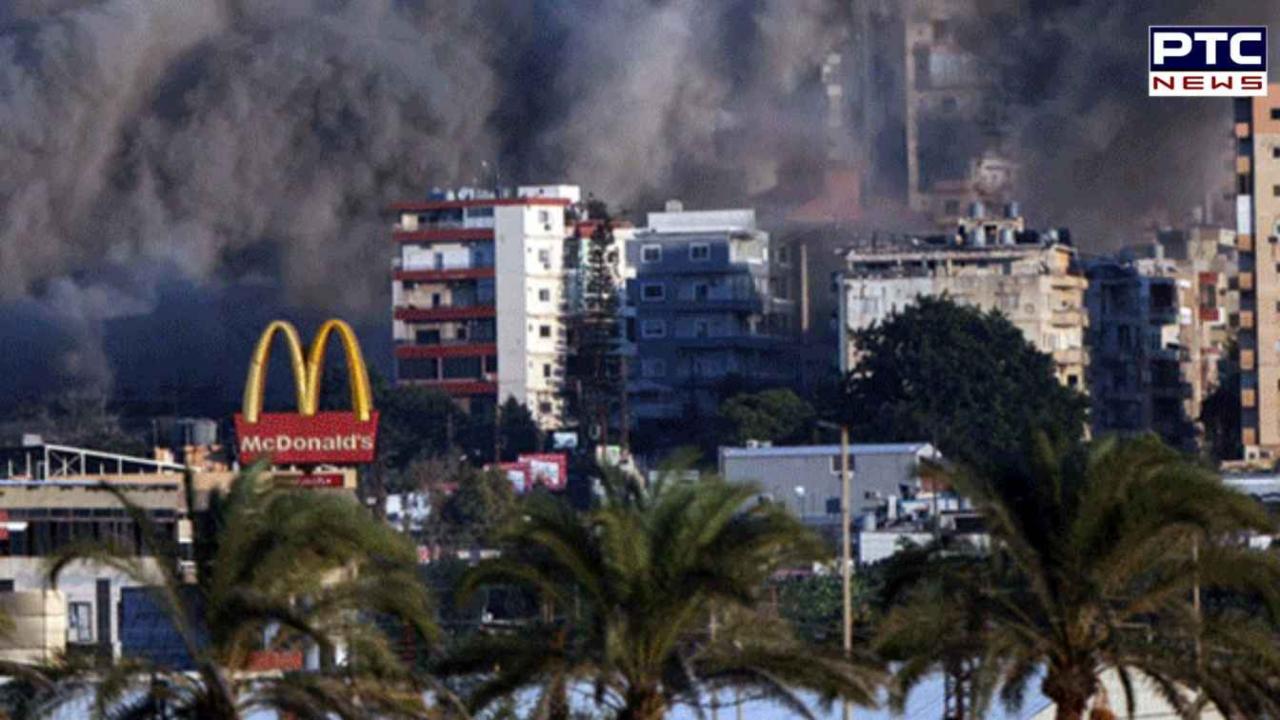Israel rejects ceasefire in Lebanon; India issues advisory for citizens amid escalating conflict | IN POINTS
Lebanon's state media reported that Israeli airstrikes targeted the Younin area on Thursday, killing 23 Syrian workers who had come to Lebanon for employment
PTC Web Desk: Israel has declined to halt its military operations in Lebanon, according to a statement released by the Israeli Prime Minister’s Office on Thursday. The statement dismissed reports of a ceasefire, affirming that such claims were false. The refusal came despite requests from the US and France to suspend hostilities. Israeli Prime Minister Benjamin Netanyahu has not responded to these demands.
According to the Israeli government, the military will continue its operations in Lebanon based on the Prime Minister's directive. Meanwhile, Hezbollah launched 45 rockets targeting Israel's Rafael Military Facility, though the extent of the damage remains unclear.
23 Syrian civilians killed in Israeli airstrikes in Lebanon
Lebanon's state media reported that Israeli airstrikes targeted the Younin area on Thursday, killing 23 Syrian workers who had come to Lebanon for employment.
UN calls for ceasefire amid growing conflict
Earlier, on Wednesday, an emergency session was held by the United Nations General Assembly (UNGA) in New York to address the escalating conflict between Israel and Lebanon. The US and France had proposed a 21-day ceasefire to facilitate dialogue between the two sides.
Australia, Canada, Saudi Arabia, the UAE, Qatar, and several European nations supported the call for a ceasefire. France, in particular, emphasised the urgency of halting the conflict to prevent further destabilisation in the Middle East. They argued that diplomacy could be the key to avoiding an escalation of violence.
Israel prepares for ground invasion in Lebanon
Israel is reportedly preparing for a ground incursion into Lebanon. According to a CNN report, Israeli military chief Herzi Halevi stated on Wednesday that airstrikes are aimed at destroying Hezbollah’s infrastructure while paving the way for a potential ground invasion.
Halevi added that the Israeli military plans to enter Hezbollah-controlled areas and dismantle their military posts, sending a clear message about the consequences of facing the Israeli Defense Forces (IDF). The recent attacks by Hezbollah have forced many Israeli citizens to evacuate their homes, but the military's operations aim to enable their return.
Pressure mounts on Biden to end conflict
The conflict in Gaza has been ongoing for nearly a year, and US President Joe Biden is under increasing pressure to mediate peace in the Middle East. With only 116 days remaining in his presidency, Biden has been actively working toward a ceasefire, though his efforts have yet to bear fruit. A successful mediation could bolster his image and benefit the Democratic Party in the upcoming elections.
Despite Biden's efforts to broker peace, the US continues to supply Israel with advanced weaponry. These arms have contributed to the deaths of over 40,000 people in Gaza, many of whom are women and children.
Hezbollah-Israel conflict escalates to its worst in 18 years
The conflict between Israel and Hezbollah reached its most intense level since 2006, following a series of violent attacks last week. On September 17, Lebanon was hit by a pager attack, followed by explosions targeting pagers and walkie-talkies the next day. Hezbollah and Lebanon held Israel responsible for these attacks.
Israel has been conducting missile strikes on Lebanon for the past seven days. According to Al Jazeera, the Israeli strikes have killed over 620 persons and displaced more than half a million residents. The military operation, dubbed "Northern Arrows," has seen Israel target 1,600 Hezbollah positions, with 10,000 rockets reportedly destroyed. On September 23, the IDF launched its largest attack yet, killing 569 persons. The strikes continued into Wednesday, with the Lebanese health ministry reporting at least 72 more casualties.

Why Israel launched the attack?
Al Jazeera reports that the year-long conflict in Gaza is nearing its conclusion. Key figures behind the October 7 attack, including Haniyeh and Mohammed Deif, have been killed. With the situation in Gaza winding down, Israel is now shifting its focus to Lebanon. On September 16, a day before the pager attack, Prime Minister Netanyahu outlined an additional objective in the ongoing war.

"I've said this before, and I'll say it again—I'll ensure that those displaced from the Lebanon border will return to their homes," Netanyahu declared.
Israeli Defense Minister Yoav Gallant also announced a strategic shift, moving focus from Gaza to Lebanon. Israel's goal is to weaken Hezbollah and facilitate the return of 60,000 displaced people to the Lebanese border region.
India issues advisory for citizens in Lebanon
In response to the deteriorating security situation, the Indian government issued an advisory late Wednesday evening, urging its citizens in Lebanon to leave the country immediately. The Indian Embassy in Beirut advised Indian nationals to remain highly cautious. Two months prior, the embassy had warned citizens against travelling to Lebanon.
The conflict between Israel and Hezbollah has intensified over the past eight days, with more than 700 deaths reported.